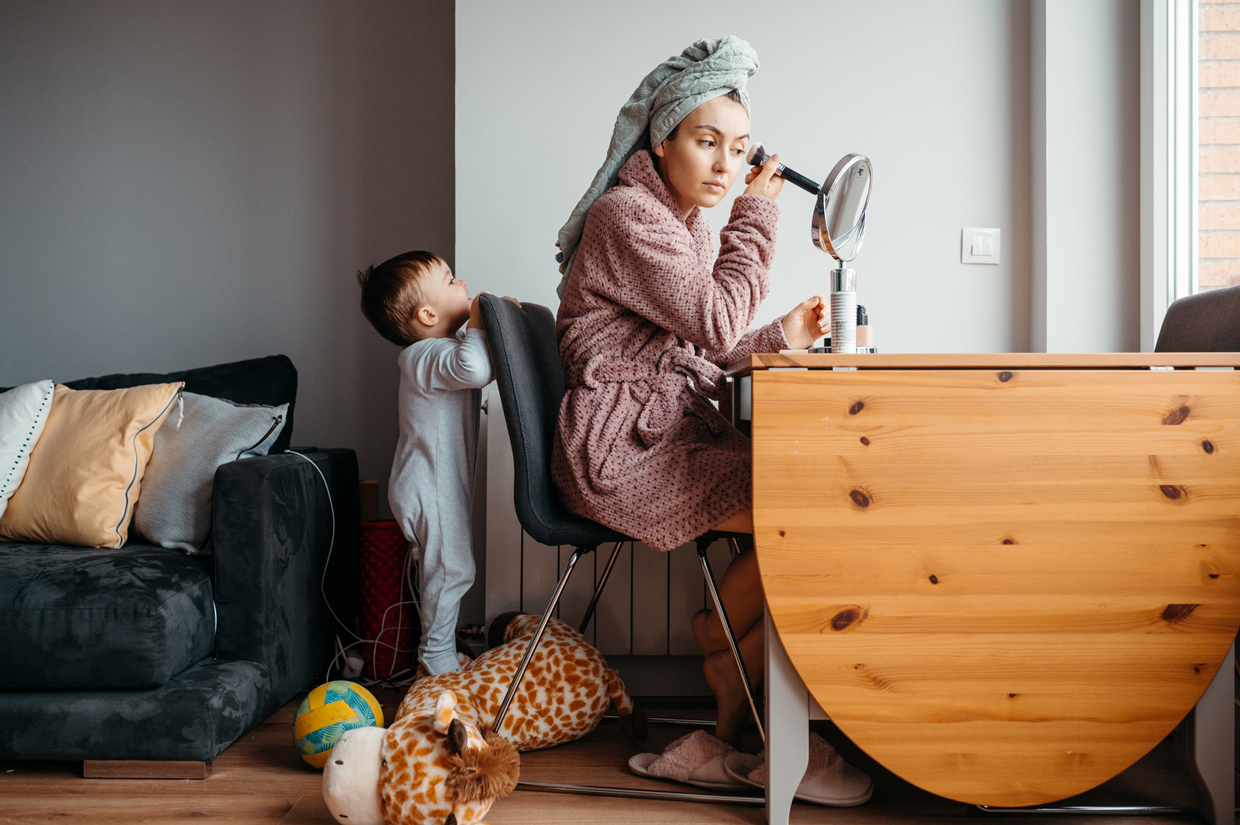We all go through significant changes throughout our 20s (and 30s). From landing our first job and building our career to dating and potentially getting married, one of the constants throughout it all is our friends. Supportive and caring for all milestones, achievements and disappointments, our closest pals keep us sane and happy as we take each lap around the sun. However, as we grow older and our obligations change, we will find that we have less time to spend on friends, and we develop new relationships that can sometimes take priority, says psychiatrist Yalda Safai, MD.
You and your best friend may find yourself in completely different life stages — she’s married and expecting a baby, you’re single and buying your first rental property on Airbnb. Or, you recently decided to quit your job to go to graduate school — and she landed yet another promotion that keeps her busy.
It can be difficult to stay connected and nourish your friendship when you’re not on the same page — or even in the same book. Here is a guide on being there for one another, no matter how divergent your paths may become.

Find your common ground.
Your weekends may be filled with going to soccer matches and meal prepping for your kiddos, while your best friend goes to hot yoga and brunch, but there is likely still a common ground to be found. If you want to maintain your friendship, try your best to discover ways to connect, recommends psychologist Dr. Yvonne Thomas, Ph.D. The most effective way to keep it a priority is to set a regular standing date in your calendar so you can both plan for it.
“If you both love playing golf, schedule a monthly time to play together,” Dr. Thomas continues. “By finding and engaging in activities in which you both share a common interest, this can help maintain and increase the bonding you have with each other despite divergent life stages.”

Avoid direct comparisons.
You may assume your best friend is ridiculously happy in her marriage and loves spending time with her family, but in reality, your travel Instagram photos make her reminisce about the freedom she used to have. And while she got hitched at 30 and you started making six-figures at 32, try your best not to make direct comparisons or assumptions about one another, says Dr. Gail Saltz, an associate professor of psychiatry at NY Presbyterian Hospital Weill-Cornell School of medicine.

One way to ensure you keep the playing ground even is not to base your hang-outs on one another’s life stages. AKA: if you’re the mom, don’t always ask your friend to come over when the baby sleeps. And if you’re stuck at the office, don’t expect your friend to meet you downtown, 30 minutes out of her way. Instead, Dr. Saltz says to choose things that aren’t directly tied to your different stages of life. “Try eating out, going to the movies, looking at art. Having friend bonding time over something both of you can equally engage in and enjoy will allow for a stronger friendship,” she adds.
Take a trip down memory lane.
Another way to remain connected to your best friend if you’re in a different life stage than they are is to remember your history together and what bonded you together in the first place. By reminiscing with each other about your favorite memories you’ve shared, it can serve as a substantive reminder of who you both were when you first became friends, the commonalities you shared, and how much you mean to each other. Examples of this include looking at old photos and videos, discussing the times you had been there for each other for major events, watching reruns of a favorite show together that was a shared experience from the past, listening to music representational of the times you have known each other, etc. These are all ways you and your best friend can remind each other of the importance of your connection together and to continue building upon that.
Be empathic and respectful.
Sometimes, you may feel like everything in your life is going right and you feel fulfilled. And at the same time, your friend may be struggling to get out of bed in the morning. The tables will always turn, so it’s essential to remain sensitive to one another’s situations. It is imperative to try to be respectful of where each other is at in their lives,” Dr. Thomas says.
For example, if you are just got a job promotion while your friend just lost their job, not talking too much about your career success would be appropriate. Instead, Dr. Thomas says it’s a better friend move to help your pal find promising job leads, look over their resume, and be emotionally supportive and encouraging. “Conversely, your friend could be congratulatory to you about your promotion and ask you for tips of what has helped with your career success as a way to learn and grow for their career pursuits,” she adds.

Be honest and open.
Last but least: Dr. Safai says that communication is the most important tool at our disposal, whether in friendship or relationships. And if you can’t be your most authentic self with your very best friend, who can you be honest with? Though it may be difficult to admit and discuss, it’s okay if your friend’s recent engagement makes you anxious about your love life. Or, if you are upset about a friend’s ability to get pregnant quickly while you have been trying for months, that’s okay, too. “Remember to communicate and let your friend know how you feel,” Safai says. By being candid, you may grow even more connected to your friend and have a stronger dynamic than ever before.







